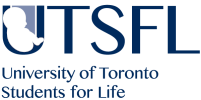Using Rehumanizing Language to Discuss Abortion
I’ve had a few conversation about abortion this year where people have claimed that it’s twisting the definition of a child to use the word before birth. “It’s not a child, it’s a fetus! You’re twisting words, man. Child means like, walking around ‘n’ stuff, at least born! Don’t try to manipulate me like that! Use the right term.”
The Oxford English Dictionary defines “child” as follows:
- child, n.
- I. With reference to state or age.
- 1. (a) An unborn or newly born human being; a fetus, an infant. […]
- 2. (a) A young person of either sex, usu. one below the age of puberty; a boy or girl. […]
- II. As correlative to parent.
- 9. (a) A son or daughter (at any age); the offspring of human parents. […]
- Phrases P1. with child
- a. Pregnant. Hence to get (also beget) with child, to go with child.
Obviously, a fetus is a child in multiple senses of the word, and the most common senses of the word, most common phrases. It’s not true to say, “it’s not a child until it’s born!” — a fetus is a child both in the sense of his or her age, and in the sense of being offspring.
Some pro tips for nipping this nonsense in the bud:
- When a woman is pregnant, we say that she is with… ? Do we say that she is “with fetus?” Or “with clump of cells?” Or… “with child?”
- When two human beings reproduce, what do they have?
- How many children do your parents have? Isn’t child also another word for offspring, no matter how old you are?
Same goes for “baby,” which the OED defines as:
1. a. A very young child, esp. one not yet able to walk and dependent on the care of others; an infant. Also applied to an unborn child.
I’ll even use “kid” as slang in some contexts. OED:
5. slang a. A child, esp. a young child. (Originally low slang, but by the 19th c. frequent in familiar speech.)”
Terms like fetus or embryo, while accurate, are frequently used to dehumanize pre-born children. People don’t understand they’re just age-range terms, like infant, toddler, or teenager. They’re different than the words we use to talk about born children.
We need to re-humanize pre-born children, and one of the ways to do that is by using accurate, natural language to talk about them — to talk about pre-born children using the same words we use to talk about born children. If someone really has a personal hangup with a word like “child,” I’ll adapt my wording in a heartbeat, but only if it’s clear it’s a barrier.
Rehumanizing language — using accurate words for pre-born kids that we also use for born kids — focuses conversation onto the important question: isn’t a pre-born child also a human being?

I would LOVE to contribute to the rehumanization of preborns. I believe my firsthand experiences during my early pregnancy (along with some scientific backup) will be an asset to do so, but I do have concerns that my experiences will not be accepted without some help. Would you have any connections that may be able to help me in this regard?
Hey Tiffany, are you looking to share your experiences in writing? Or with ultrasound photos/videos? Or what were you thinking?